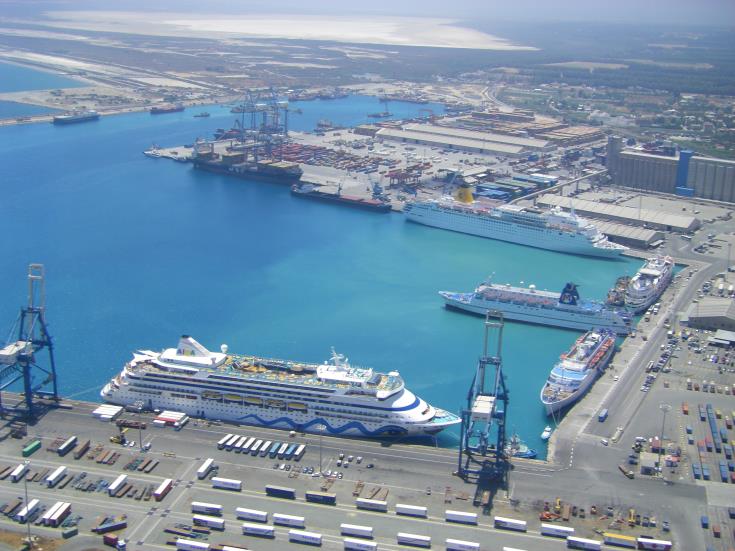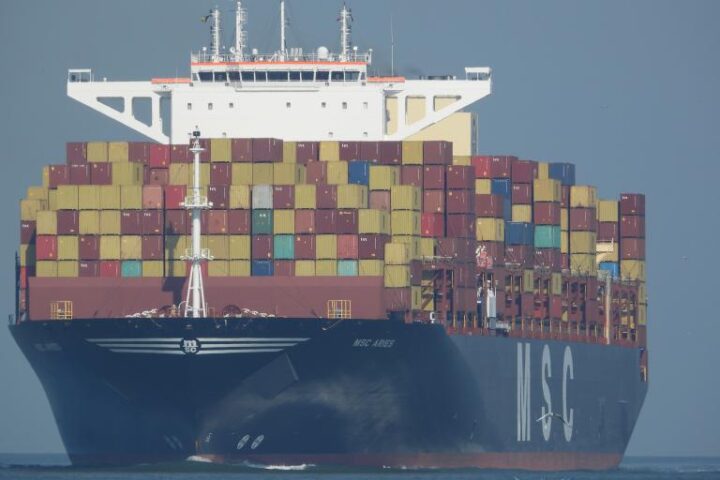Cyprus will allow cruise ships to dock in it ports only for refuelling purposes, as it relaxes restrictions imposed in March due to the coronavirus pandemic, while operators and shipowners may also bring their vessels to the island for a ‘hot lay-up’.
During a ‘hot’ lay-up, the vessel is out of service but can be mobilised into service at short notice, whereas in ‘cold’ lay-up, it is moored or anchored at a safe place, awaiting newer employment or charter.
According to Marine Insight, a leading online maritime training and information platform, the term refers to “ships which have temporarily been taken out of profitable service due to lack of charter or cargo.
Sometimes, an increase in freight costs become insufficient to cover up for the ships’ running costs. ‘Laying up’ ships, therefore, makes sense to the owners during such rough times.”
The official Cyprus News Agency reported on Wednesday that “in a revised decree issued by the Minister of Health, the authorities said docking of cruise ships is allowed in Cyprus ports for reasons of refuelling and warm lay-up.
“Furthermore, the revised decree exempt from restrictions the crews of ships that are in warm lay up as well as crews of pleasure yachts. The decree, however, prohibits crew members to disembark their vessels for any other reason other than crew change.”
The Health Minister stated that from May 4, “docking of cruise liners for supplies (without disembarkation of passengers or crew replacement)” would be allowed, as well as “replacement of crews of commercial vessels and transfer of private crafts to licensed locations for the purpose of berthing, maintenance and repairs.”
The Deputy Ministry of Shipping said it “recognised the essential importance of the maritime professions … and the problems due to the Covid-19 pandemic, particularly as regards crew changes.”
Earlier, the Cyprus Shipping Chamber, whose members employ up to 60,000 seafarers onboard their vessels around the world, joined a global appeal to G20 leaders to facilitate crew changes and safeguard access to healthcare onshore to these ‘unseen heroes’ of world trade.
Leading maritime hubs, including Cyprus, have been calling for the recognition of seafarers as “key workers” and for much-needed crew-exchange to be allowed at key ports during the pandemic, permitting seafarers to safely embark and disembark from vessels.
According to the International Chamber of Shipping (ICS), some 150,000 seafarers are in need of crew change by May 15.
This number is up by 50% from 100,000 when the ICS first highlighted the problem with national governments and the G20 on April 10.
“Continued inaction will see this number continue to rise as more seafarers require crew change,” the ICS warned
It added that “the current situation risks the safety and mental wellbeing of seafarers. The continued inability to rotate seafarers on and off ships poses a serious threat to the ability of ships to deliver vital cargo at a time when countries need it most.”
“There are 1.2 million seafarers onboard 65,000 ships at sea. For the past two months, crew change has all but completely stopped. This means that crews have not been able to disembark or embark ships at port and terms have had to be extended, but this is not sustainable,” said Guy Platten, Secretary-General of ICS.
Financial help
CSC President Philippos Philis said in a statement that “the Shipping Chamber noted with satisfaction the recent decision of the Cyprus government to allow crew changes on merchant ships. It is now necessary, to find functional ways of implementing the above decision which will enable shipping to resume proper operations, as well as to restart the flight connectivity of Cyprus the earliest possible, always having as a top priority the safety of public health.”
However, he added that an even more pressing issue is the immediate government support to Cyprus shipping.
“Despite facing substantial economic and operational difficulties both internationally and locally, it remains one of the most important and productive sectors of the Cyprus economy (contributing 7% of GDP).”
Philis urged the island’s political leadership to urgently approve the government’s €2 bln bill, which has been pending in parliament for the past few weeks and provide state guarantees for the provision of financial liquidity to companies as well as waiving financial covenants related to loans.
“Due to the immense impact that shipping has suffered internationally from the pandemic and the consequent freight rates reduction, these financial provisions are extremely urgent and necessary, so that shipping companies in Cyprus can meet their immediate working capital needs and remain operational.”
Substantiating the argument for government assistance, CSC General Director Thomas Kazakos recently said that since the beginning of the COVID-19 outbreak the impact on freight rates on global shipping ranged between 20% and 30% depending on the sector.
“It is too early to make comprehensive estimates on the impact of the pandemic on shipping, but certainly coronavirus will have medium to long-term consequences depending on containment and how quickly economic activity restarts,” Kazakos said.
He said that the shipping sector addressed practical issues since the outbreak such as crew changes and certificates both for seafarers and ships that have been extended so that global and Cypriot shipping continues to operate until these measures are eased.
Last month, a Central Bank of Cyprus report said that revenues from ship-management companies, by far the biggest money earner for the maritime cluster, reached an all-time high of €581 mln in the second half of 2019, up €58 mln from the first half, to reach €1.104 bln for the year.
The rise is generally attributed to Cyprus’ regime of competitive management fees, as well as the low-tax system based on the tonnage of a vessel, that was renewed by parliament for a further ten years.
But it warned that the 2H2019 survey was for the period between July and December 2019, which preceded the outbreak of the coronavirus pandemic.
“Consequently, it does not contain any information concerning the impact of the pandemic COVID-19 on the ship management industry. We reserve this analysis for future editions of the report,” the central bank report said.
Core ship management services (crew, technical and full management operations) accounted for 79% of the industry’s revenues in 2H 2019, down from 83% in the first half of 2019. Crew management services increased slightly to 49% of the total amount of ship management revenues in 2019H2.
Historically, the industry exhibits a relatively stable structure of expenses with the majority concerning crew expenses, which accounted for 64% of the total. Most of these payments were to non-EU seafarers (46%).










